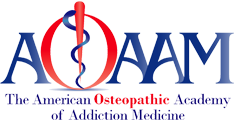By Kathleen T. Brady
In response to the opioid epidemic in the U.S., cities, counties, states, insurers, and medical groups have filed more than 2,000 lawsuits seeking to hold pharmaceutical companies accountable for it. Those lawsuits are now consolidated in front of a single judge in Ohio who must decide how the billions of dollars in settlements should be used. Opinions abound on how this money should be spent.
In the midst of this discussion, we shouldn't miss the tragic reality that we are still losing 130 lives every day as a result of opioid overdoses.
That's why I, on behalf of five organizations representing physicians and experts on the front line of this crisis, urge that money garnered from the opioid settlement be used to directly combat the opioid crisis through three main approaches:
- support for evidence-based treatment and prevention efforts
- research focused on new approaches to treatment and prevention of opioid and other substance use disorders
- improvement of training for practitioners in treatment of addiction and pain management
Treatment and prevention efforts desperately need financial support. Between 2009 and 2012, state budget cuts to mental health and addictions services amounted to $5 billion and have never recovered since. An abundance of evidence shows that these services actually make a difference. Numerous studies, for example, indicate that medications for addiction treatment significantly reduce the risk of overdose, relapse, and other health and social outcomes of opioid addiction.
But partly due to lack of funding, only about 10% of the 2 million Americans with substance use disorders receive treatment for them. And while the federal government recently announced some funding for access to evidence-based treatment for individuals with opioid use disorders, it's a short-term investment with an unclear future.
In spite of what we now know about treatment and its effectiveness, we can learn much more. Exciting advances in neuroscience have identified neural pathways underlying addictions and pain that can be used to develop new therapeutic interventions, but the pathway from basic discovery to everyday usage is costly. At a systems level, health services research can help transform and reshape the treatment system, making it more accessible and effective. And there is much more we can discover about preventing substance use disorder in the first place.
Most physicians and other health care providers receive only basic training in the prevention, recognition, and treatment of addiction and the care of pain. Lack of provider preparedness in these areas has been partially blamed for the limited response to the opioid crisis. Meanwhile, there is a dearth of qualified addiction treatment specialists. Funding from the opioid settlement should be dedicated toward extending the workforce capacity through additional addiction psychiatry and addiction medicine fellowships, as well as better training for health care providers in general on addiction and pain care.
The historic $246 billion Tobacco Master Settlement Agreement in 1998 was supposed to support treatment and prevention of smoking. But it mostly wound up covering state budget shortfalls, subsidizing tax cuts, and supporting general services. In fact, according to a report from the Campaign for Tobacco-Free Kids, 20 years after the settlement states had spent only 2.6% of the settlement revenue on smoking prevention and cessation programs.
It would be a shame not to use the opioid settlement to help the people who are living with this public health emergency across our country. The money from any forthcoming opioid settlement must be applied to the problem — to help victims of opioid and other substance use disorders through access to evidence-based care, research, and training.
Kathleen T. Brady, M.D., Ph.D., is professor of medicine and vice president for research at the Medical University of South Carolina, and president and chair of the International Society of Addiction Medicine's executive committee. The views expressed here are shared by the American College of Academic Addiction Medicine, the American Academy of Addiction Psychiatry, the American Psychiatric Association, the American Osteopathic Academy of Addiction Medicine and the Association for Multidisciplinary Education and Research in Substance Use and Addiction. The American Academy of Addiction Psychiatry does not accept funds from pharmaceutical companies to support its educational programming, scientific program, seminars, or print materials. In 2016, Biodelivery Sciences was among the exhibitors at the academy's annual meeting in 2016, and Orexo was an exhibitor in 2018; both companies manufacture addiction treatments as well as opioid pain medications. The American Psychiatric Association receives funding from some pharmaceutical companies, including those that manufacture opioid analgesics, via advertising in its publications and at its meetings in the form of exhibits, sponsorships; or product theaters; those areas are segregated from the association's educational activities.
